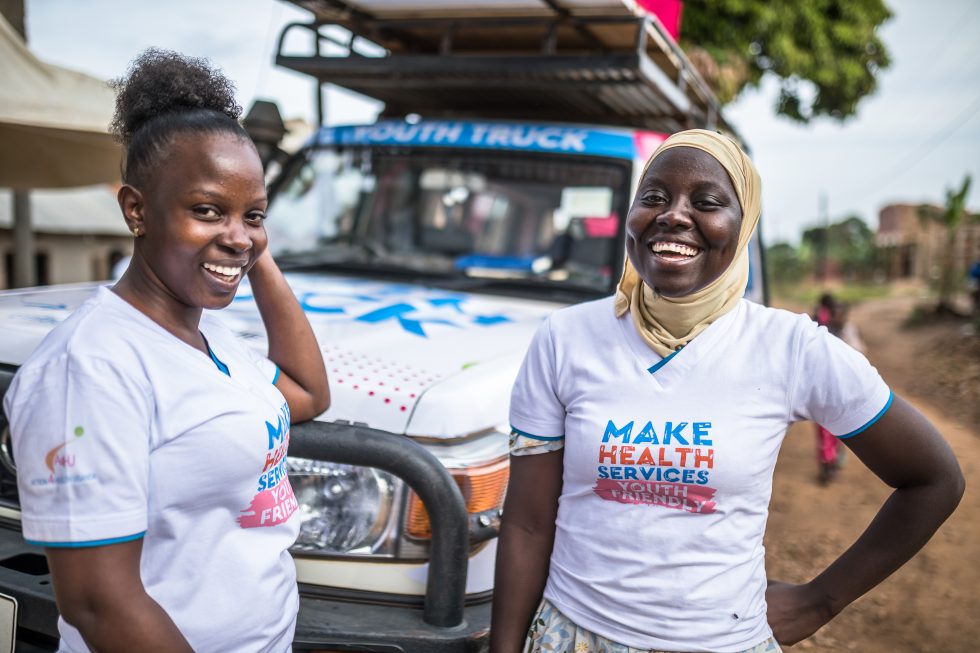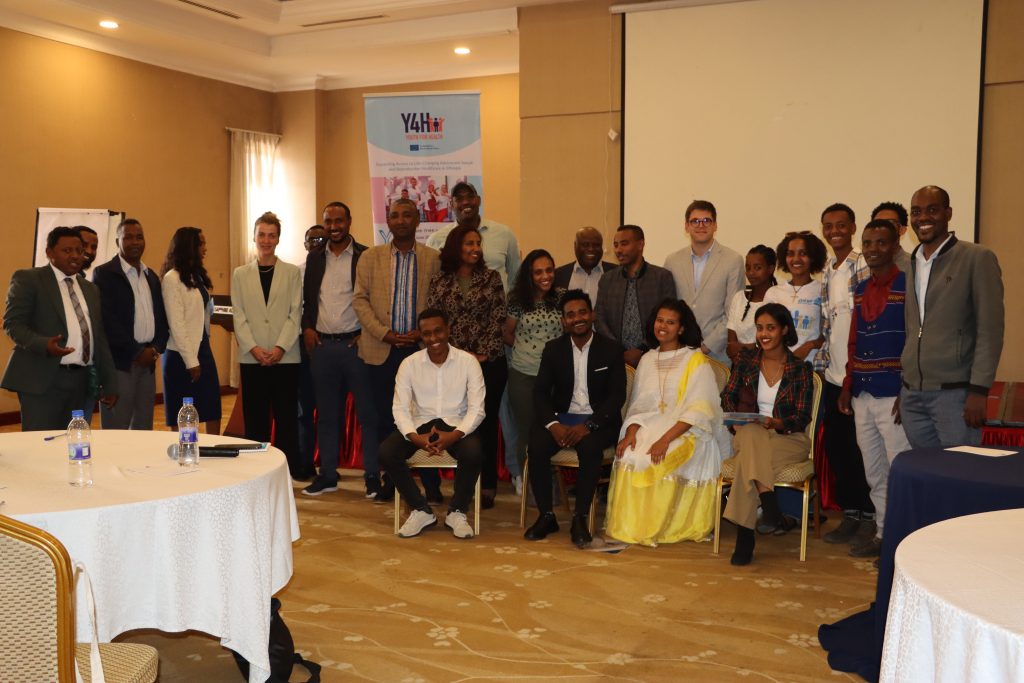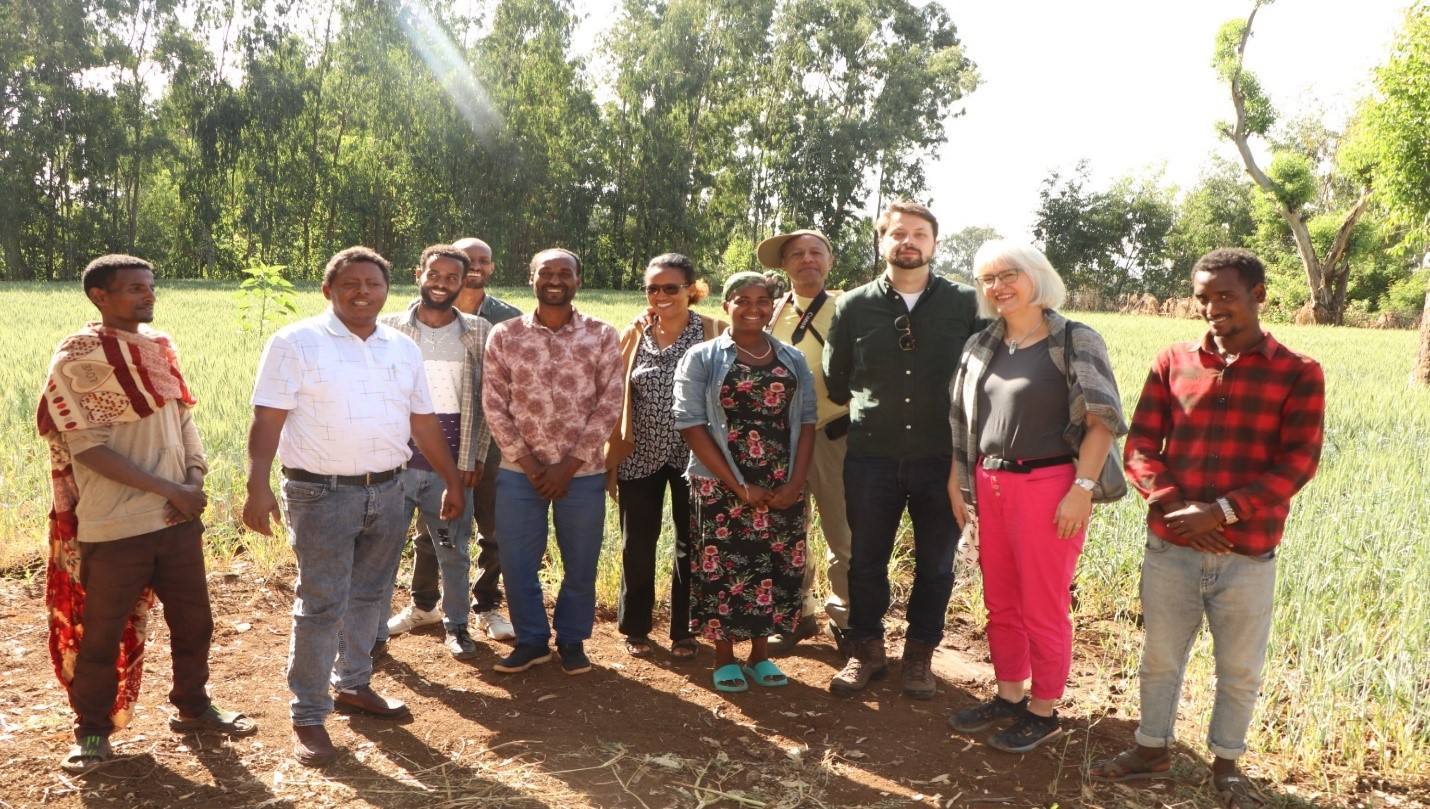

SAfA: Leveraging synergy for significant impact
It was stated that the implementation of the “SAfA Project” should be made more effective by enhancing synergies among the implementing partners. Leveraging synergy will play a significant role through coordinating resources, enhancing visibility, following a standardised style of communication, sharing experiences, and ensuring effective project execution.
It has been two years since the “SAfA” project started in Ethiopia. During this time, the various activities planned by the project are being carried out by three implementing partners, namely DSW Ethiopia, HRNS Ethiopia, and the Elias Melake Foundation. The aim of the project is to improve the reproductive health and livelihood prospects of young people. The project is expected to reach and support more than 73,000 youth. DSW’s work within the project focuses on the reproductive health of adolescents and youth, HRNS has been carrying out various support activities aimed at improving the livelihood prospects of the youth, focused on agriculture, while the EMF, has been facilitating entrepreneurship, logistics, and supply chain management trainings.
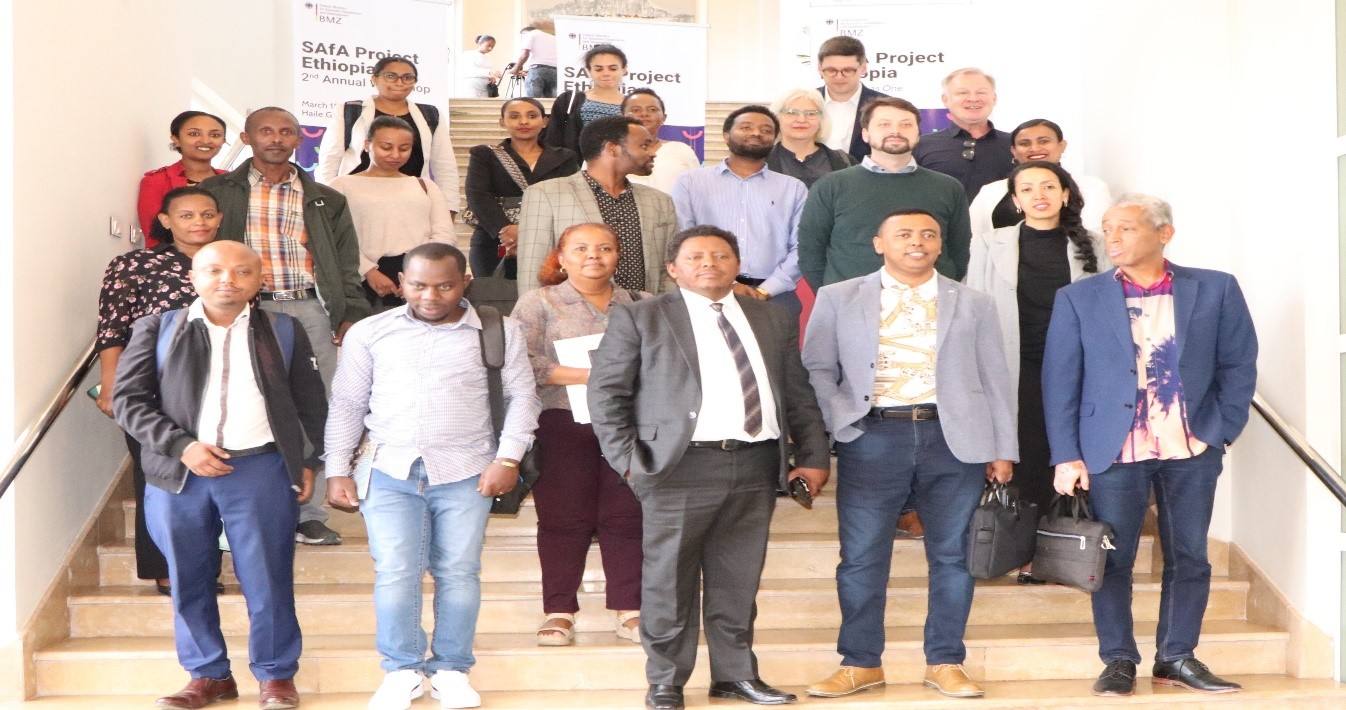
In a meeting held at the Haile Grand Hotel by the Project Coordination Unit, a joint discussion was held exploring the two-year duration of the SAfA project so far. Angela Bähr, Deputy Executive Director of DSW, as well as Peter Kroll and Lora Yousef from DSW’s Head Office participated. From DSW’s Ethiopian country office, the Country Director, Feyera Abdissa, and other experts were present. Officials from other implementing partnerships, HRNS and EMF, and other experts also participated in the joint meeting. At the joint meeting, the performance of each of the implementing partners in the last two years as well as the next work plans were presented to the participants. The three implementing partners together discussed the work performance of the “SAfA” project from the time it started until now. In addition, donor-related guidelines and financial management procedures were jointly reviewed.
After the meeting, a field visit was conducted in the Semien Mecha and Jabi Tehnan districts of the West Gojjam Zone of the Amhara region. During the visit, members of the SAfA executive committee, officials, and experts from all implementing partners were able to see the overall activities being carried out by all three organisations.
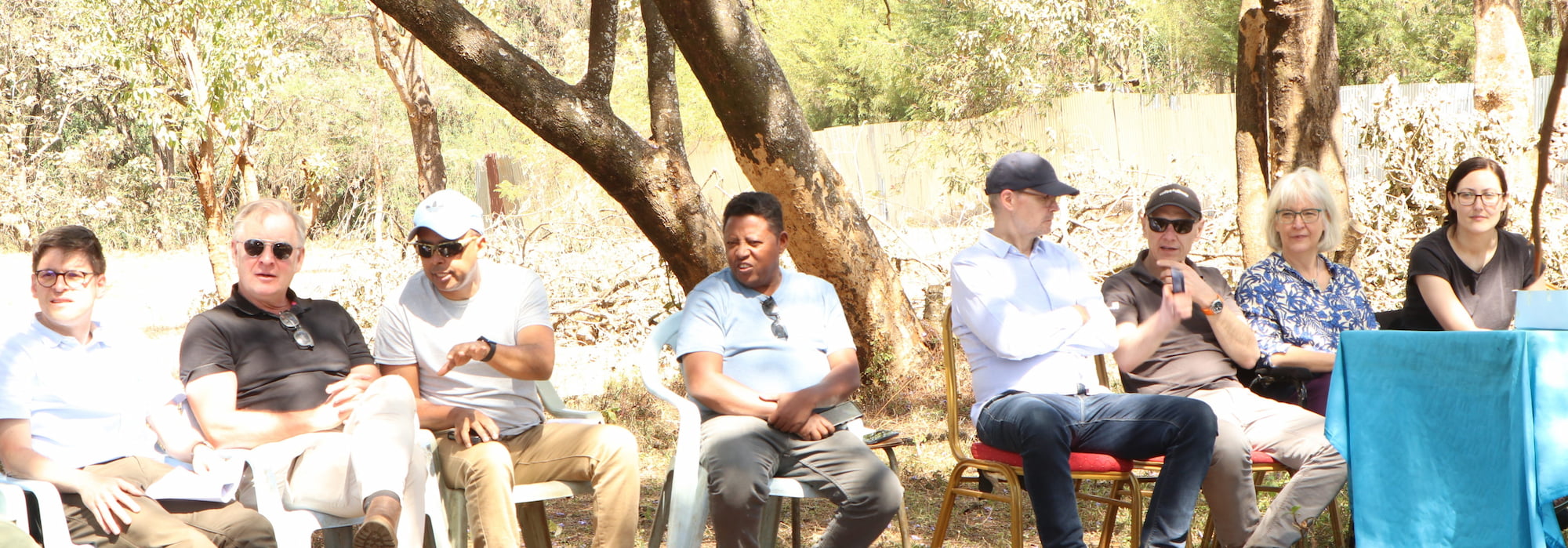
One of the activities seen during the fieldwork visit was the “Semien Mecha Youth Empowerment Center” activity. Mr. Tazebew Geremew, the coordinator of the Youth Empowerment Centre (YEC), who gave an explanation to the visitors about the overall activities of the center, said, “Our YEC is doing various activities focusing on the reproductive health of the youth. We have received various training and material support provided by DSW. Currently, we are working on awareness-raising activities aimed at preventing HIV and sexually transmitted diseases, preventing unplanned pregnancies, and expanding information on family planning services using DSW’s AYSRH Manual. We are systematically using peer-led dialogue, door-to-door visits, and mass campaigns to increase coverage of reproductive health information.”
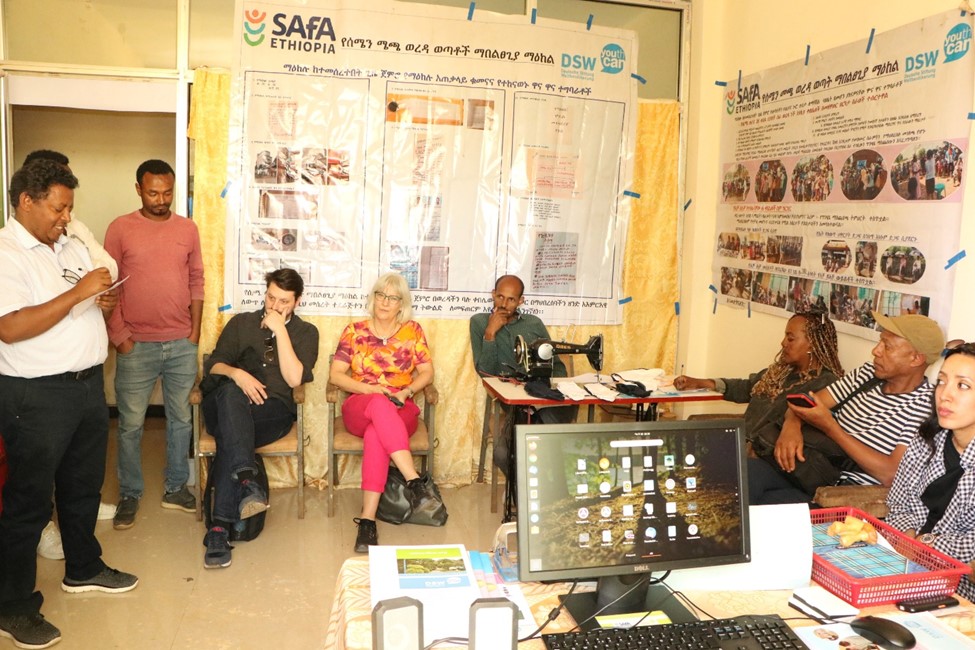
Pictured above are five women, who are members of the YEC, who received training from DSW on the production of reusable menstrual hygiene products and the use of sewing machines. In addition, they have been provided with start-up materials for the production of these products. This aims to encourage women and clubs to engage in income-generating activities and address reproductive health issues related to menstrual hygiene.
Apart from the training, they were provided with a sewing machine to produce reusable menstrual hygiene products. The women who received this training and sewing machine said, “Now we have started producing reusable menstrual hygiene products for trial using the sewing machine that DSW gave us. Next, we will produce reusable menstrual hygiene products that are of high quality and suitable for young women and offer them to the market at an affordable price.”
Shewaye Tsehayu, the coordinator of the five women, gave an explanation to the question raised about whether the demand among the society is enough, “In our area, one of the reproductive health problems that young women face in their daily lives is poor hygiene during menstruation. The reason is that at this time, women cannot easily find reusable menstrual hygiene products, and the prices of products on the market are either not affordable or do not take into account the purchasing power of young women. There are women living in our area who do not leave the house until the menstrual cycle is complete. As a result, they are forced to miss school and even drop out. Therefore, our production of reusable menstrual hygiene products and marketing them to young women in our area, apart from generating income, plays a significant role in reducing reproductive health problems.”
According to the members of the YEC, who responded to the question raised by the DSW Deputy Executive Director, Angela Bähr, about the price and where they intend to sell the reusable menstrual hygiene products, “The pricing process is based on our cost of inputs, researching the selling prices of other manufacturers, and considering the purchasing power of young women in our area.” In addition, the members of the center said, “We will soon receive a market place or a shed from our local government that will be used to sell the reusable menstrual hygiene products we produce. Besides taking over this market place or shed, we are carrying out the process of issuing a legal business license”, they said. In the future, it will be possible to find the products permanently in a market or shed. They will also go to different places to promote and sell them. They plan to use the income from selling these products to fulfill their needs, strengthen their centre, and do youth-centered charity work.
Mr. Tazebew Geremew, the chairman of the Semien Mecha YEC, said, “Based on the adolescent and youth SRH and life skills trainings we received from DSW, we are providing peer-to-peer discussions and cascading training to various young people living in our area.” For this, we are mainly using the DSW AYSRH training manual.
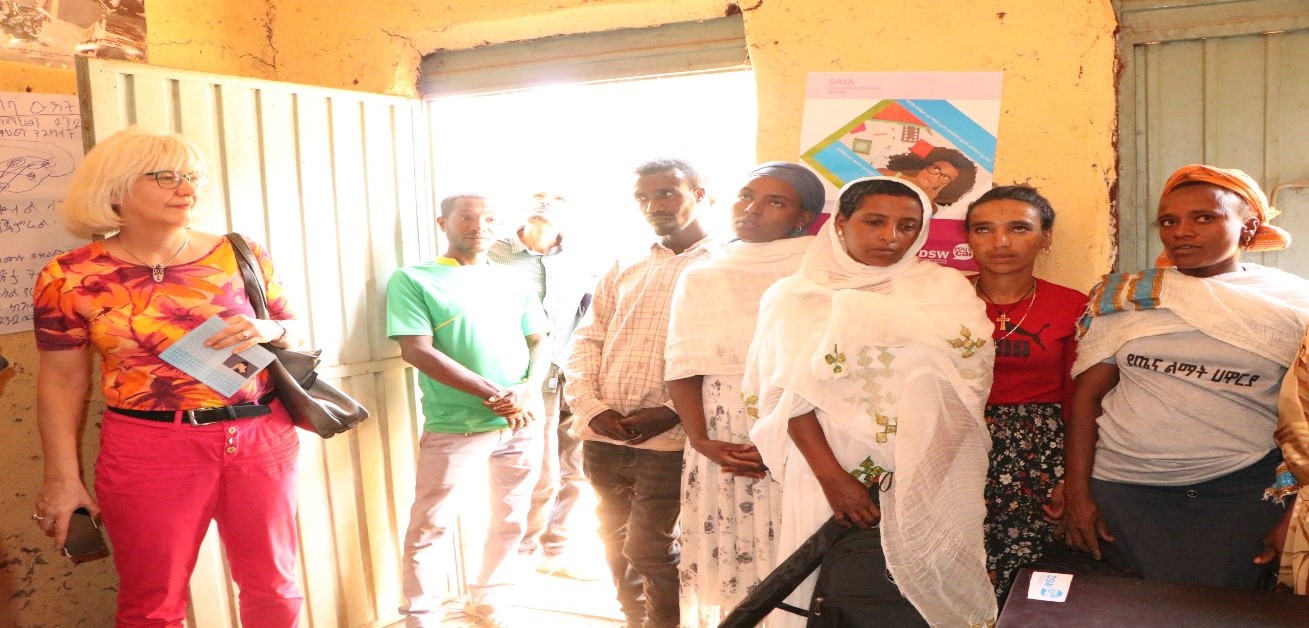
Angela Bähr shared her thoughts with the members of the centre: “Appreciating the efforts of the center to involve women in the work it does, it is necessary to increase the participation of women and to strengthen joint efforts to reduce the challenges that may reduce young women’s participation.”
“DSW provided us with training to make safe, washable, and reusable sanitary pads. This will help women in our area have access to safe menstrual protection, help protect the environment, and help us generate income by selling these products in the market.”
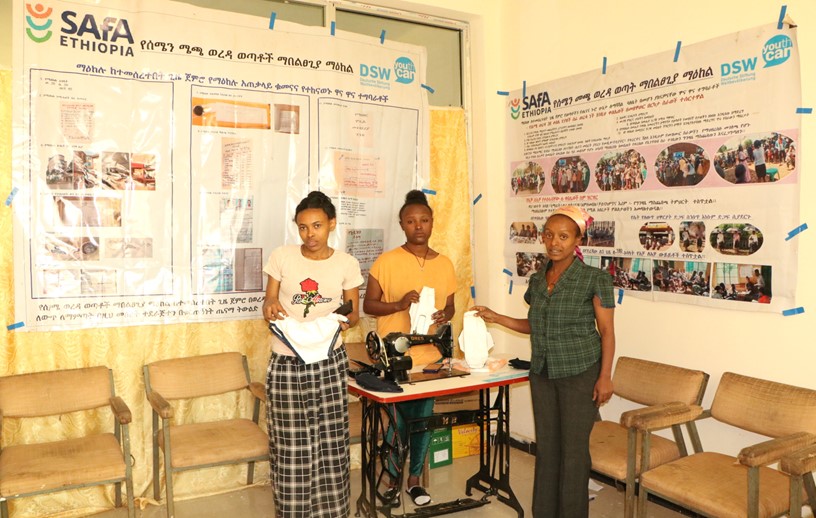
Another highlight during the fieldwork visit was the work of the female change agents, who are members of the Ambo Mesk YEC. Female Change Agents are young women who are working to reduce reproductive health problems in their communities by conducting door-to-door visits and community dialogue with a focus on married young women.
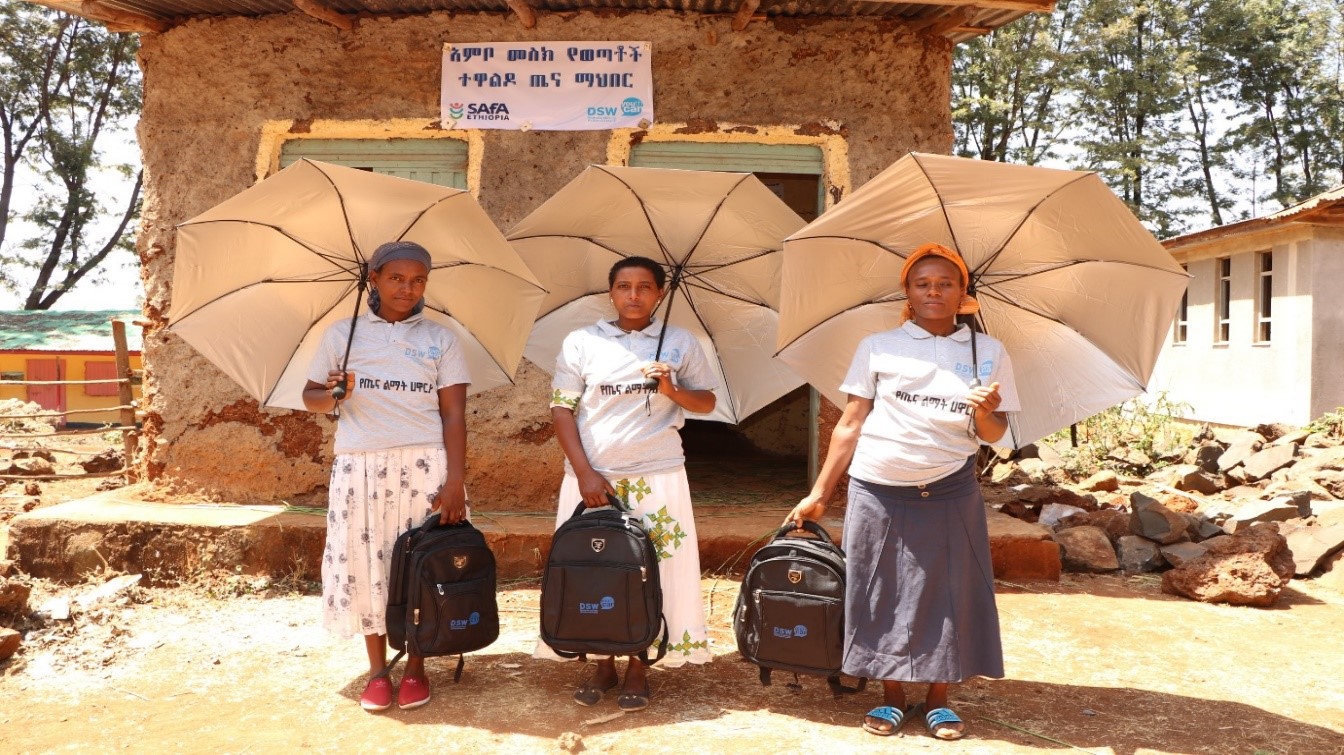
These young women said, “Limited access to SRH information and services contributes to the prevalence of unintended pregnancy. Community discussions and door-to-door visits conducted by female change agents enabled young married women in Ambomesk kebele to openly discuss SRH concerns, identify local problems, and ask for solutions. Through our current work, young married women and their partners have had the opportunity to understand the healthy practices and benefits of SRH. Through various discussions, young married women were informed about birth spacing, contraceptive use, and how to protect themselves from HIV and STDs. In addition to this, young married women who showed interest in getting reproductive health services were able to make a referral link with the government health institute.”
Another thing that caught the visitors’ attention during the fieldwork visit was the “Edget Behibret YAIG”, which is supported by all three implementing partners. Members of this club are also members of the “Ergib Youth Empowerment Club,” supported by DSW. They also received various trainings from the EMF. This club, located in a kebele named Ambash, has been received various types of support since it started working with the SAfA project.
The members of the group who gave an explanation of the visit said, “We have received various kinds of help from HRNS so that the agricultural work we are doing now and in the past can be effective. Of these, we were able to get fertilizer supply, knowledge about agricultural production methods, water usage, and so on. The knowledge we gained from the DSW trainings in reproductive health and life skills showed us how to make the most of our youth. Getting logistics and supply chain management training from the Elias Melek Foundation helped us effectively market the agricultural products we produced.”
Apart from this club, other clubs that are benefiting from the accessibility of the three implementing partners in the fields of reproductive health, agriculture, logistics, and supply chain management were also visited.
Photos: private
